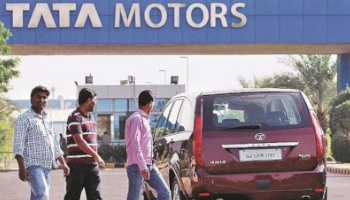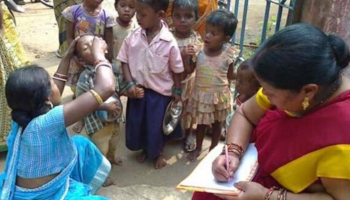Maharashtra: HC seeks state govt reply to PIL seeking reservation for transgender persons in government jobs
30 March, 2022: A Bombay High Court bench headed by Justice A A Sayed has directed the Maharashtra government to reply to a Public Interest Litigation (PIL) seeking inclusion of the third gender & reservations for transgender persons in state govt jobs, as per Supreme Court guidelines. The Apex Court had issued guidelines in 2014 mandating inclusion of transgender persons in public sector employment under the Socially and Economically Backward Classes (SEBC) of Citizens as a fundamental right under Article 15 and 16 of the Constitution. The bench also directed the Maharashtra Public Services Commission and Transgender Welfare Board of Maharashtra to file their replies.
Tamil Nadu: Maternity Benefits Act places no cap on no. of children for availing maternity benefits, holds High Court
26 March, 2022: Justice V Parthiban of the Madras High Court ordered the Education department to grant one year maternity leave to a govt school teacher for her third child-birth. Its decision was based on the fact that Section 5 of the Maternity Benefits Act, 1961 placed no cap on the number of deliveries for a woman to avail maternity benefits. Meanwhile, it held the department’s refusal to grant maternity leave to the petitioner as a violation of the Act, international conventions and the Indian Constitution.
Chandigarh: High Court restrains contract workers of PGI Hospital from striking
24 March, 2022: A Punjab & Haryana High Court bench of Chief Justice Ravi Shanker Jha and Justice Arun Palli accepted a petition by the management and quashed the one-day strike notice issued by contract workers of the Post-Graduate Institute of Medical Education and Research (PGIMER) in Chandigarh. The contract workers of PGI have been demanding wages on par with regular employees since long, but the hospital management and Union Health Ministry have chosen to ignore their demands.
Kerala: High Court prevents BPCL workers at Kochi refinery from joining countrywide general strike
25 March, 2022: Justice Amit Rawal of the Kerala High Court issued orders restraining workers and unions at Bharat Petroleum Corporation Ltd. (BPCL), Kochi refinery from participating in the 2-day countrywide general strike called by 12 Central Trade Union Organisations slated for 28th and 29th March, 2022.
Interest on compensation for death of worker to be levied from date of accident not that of the order: Supreme Court
11 March, 2022: A Supreme Court bench of Justices M R Shah and B V Nagarathna has held that the liability of an employer to pay compensation for a worker’s death, and the interest on that amount, arises from the date of the accident, not from the date of the Commissioner’s order. The bench was hearing the case of a sugarcane worker’s death in 2009 in Maharashtra’s Beed district. And it overturned Bombay High Court’s order levying interest from one month after the Commissioner’s order in January, 2017.
Delhi: Ad-hoc employees entitled to maternity benefits beyond term of contract if pregnancy occurs during contractual period, holds High Court
11 March, 2022: A Delhi High Court bench comprising of Justice Rajiv Shakdher and Justice Talwant Singh held that ad-hoc employees are entitled to all maternity benefits after their contract ends, if the conception occurred during the contractual period. The bench stated that the provisions of the Maternity Benefits Act, 1961 don’t differentiate between permanent, contractual or even daily-rated employees. And that there are no ties between maternity benefits and tenure of employment. It was hearing a petition filed by Dr. Babasaheb Ambedkar Memorial Hospital challenging a Tribunal decision in favour of a Senior Resident Doctor appointed on ad-hoc basis.
Maharashtra: High Court holds Tata Motors guilty of unfair labour practice for denying permanent status to workers
08 March, 2022: Justice Ravindra Ghuge of the Bombay High Court held Tata Motors guilty of unfair labour practices under the Industrial Disputes Act, 1947. The court held that the company’s management “systematically prevented” hundreds of temporary manufacturing workers from completing 240 days of continuous employment – which would have made them permanent employees. It overturned a Labour Court decision and ordered the company to pay compensation to the 52 petitioner-workers. However, the High Court refused regular employment status to the workers. The dispute began back in 2005 when temporary workers raised demands to be regularised and compensated, which was rejected by the Labour Court.



